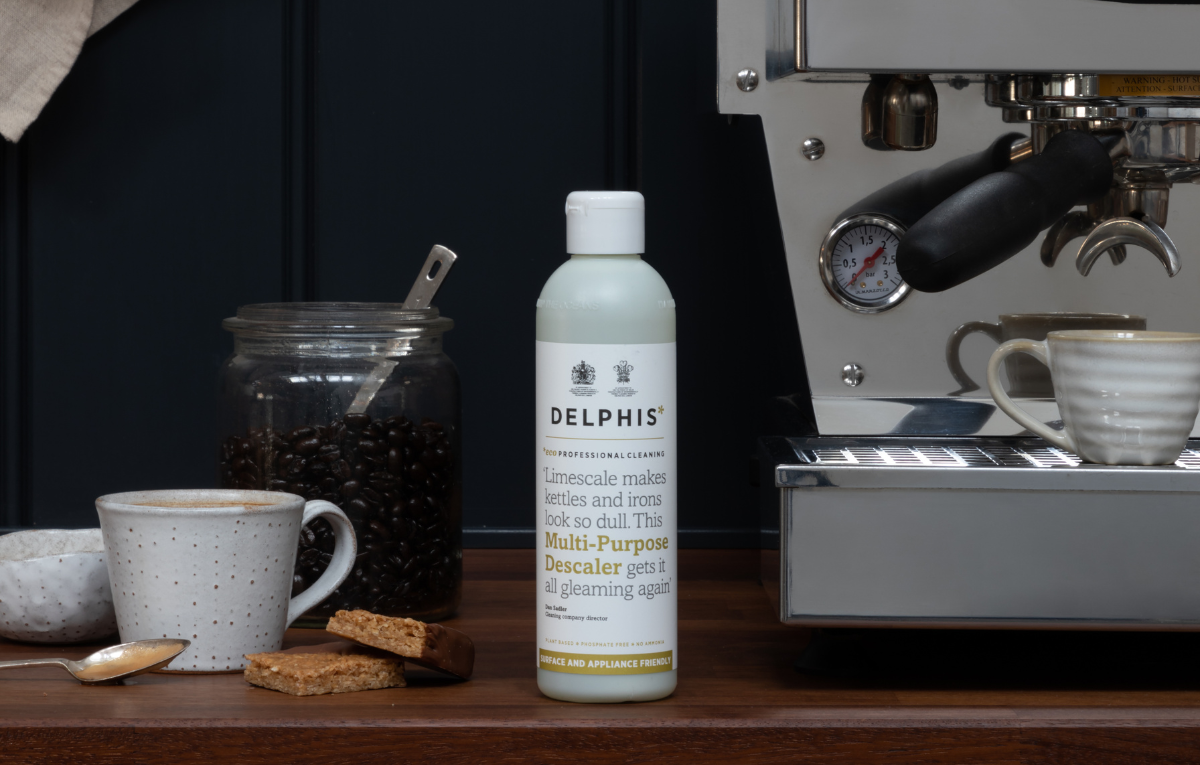6 Brands Utilising Eco-Friendly Packaging
Eco-Friendly Packaging takes many forms to satisfy the needs of the sustainable consumer. From biodegradable packaging to recycled materials and even ‘naked packaging’, brands across the globe are implementing various efforts to reduce their environmental impact.
What is Eco-Friendly Packaging?
Eco-friendly packaging is packaging that has less of an effect on the environment. It can take on many forms, but common examples are recyclable, made from recycled materials and have a minimal or reduced impact on the environment by reducing energy consumption and utilising more natural resources.
This can include shipping packaging, containers that hold products and labels.
Some examples of how packaging can be more sustainable include:
- Reduced amount of packaging
- Renewable materials
- Recycled materials
- Biodegradable/compostable materials
- Locally sourced materials to reduce carbon emissions
- Easily recycled materials
- Reusable packaging
Businesses opt for eco-friendly packaging because it lowers carbon footprints, appeals to forward-thinking consumers and ultimately benefits the planet.
So, lets explore some of the best examples of eco-friendly packaging and how brands are exploring unique methods to increase the sustainability of their packaging!
Best Examples of Eco-Friendly Packaging
Burger King & Loop – Reusable Packaging
Loop, the global reusable packaging platform, recently partnered with Burger King to trial reusable packaging for their fast-food products.
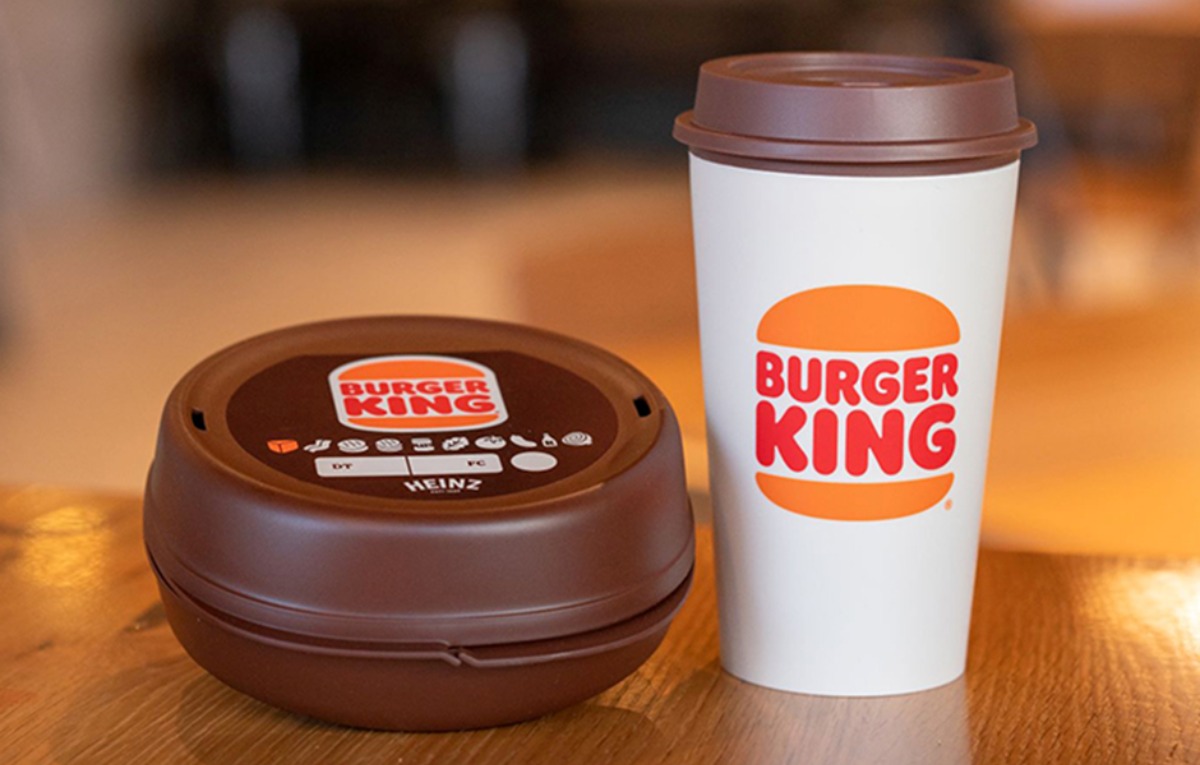
During the trial, 10 Burger King menu items were available in these reusable packaging containers, for which customers paid a £1 deposit. The containers are then returned, and deposits are refunded, allowing the reusable containers to be washed and ready to re-enter the packaging cycle for reuse.
This helps to combat and reduce the unbelievable amount of single-use packaging that is produced, especially within the fast-food industry.
H!P Chocolate – Compostable Packaging
The outer packaging of H!P Chocolate’s products are made from recyclable cardboard. The inner clear film is made from wood pulp, an eco-friendly alternative to plastic wrapping, which can be composted at home.
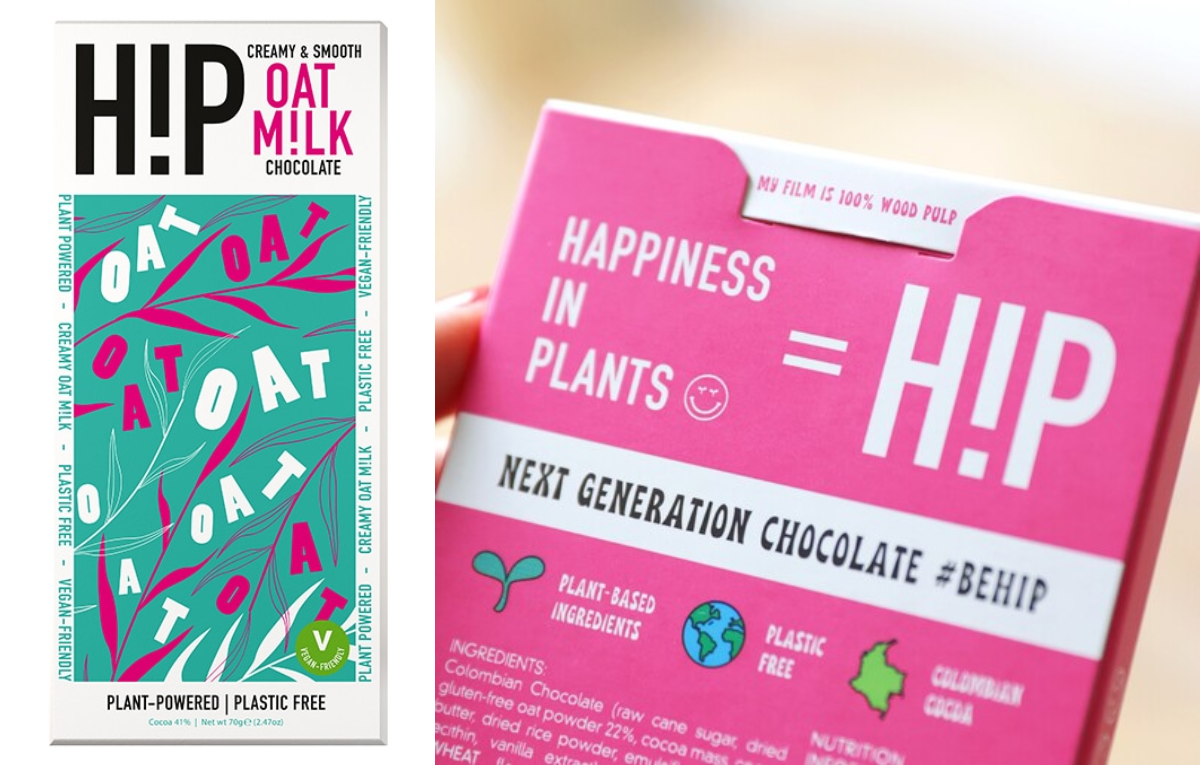
This makes their chocolate packaging 100% recyclable and plastic free, with easy disposal (recycling and composting) explained on the packaging.
This makes it easy for consumers to understand how to dispose of H!P’s packaging, encouraging sustainability.
Carbon Neutral Cartons from Tetra Pak with Morrisons
This year, UK retailer Morrisons became the first to switch their own brand fresh milk to carbon-neutral cartons from Tetra Pak.
This allows Morrisons to save an initial 100 tonnes of plastic a year, with another 678 tonnes saved by also moving their fresh juice from plastic bottles to cartons.
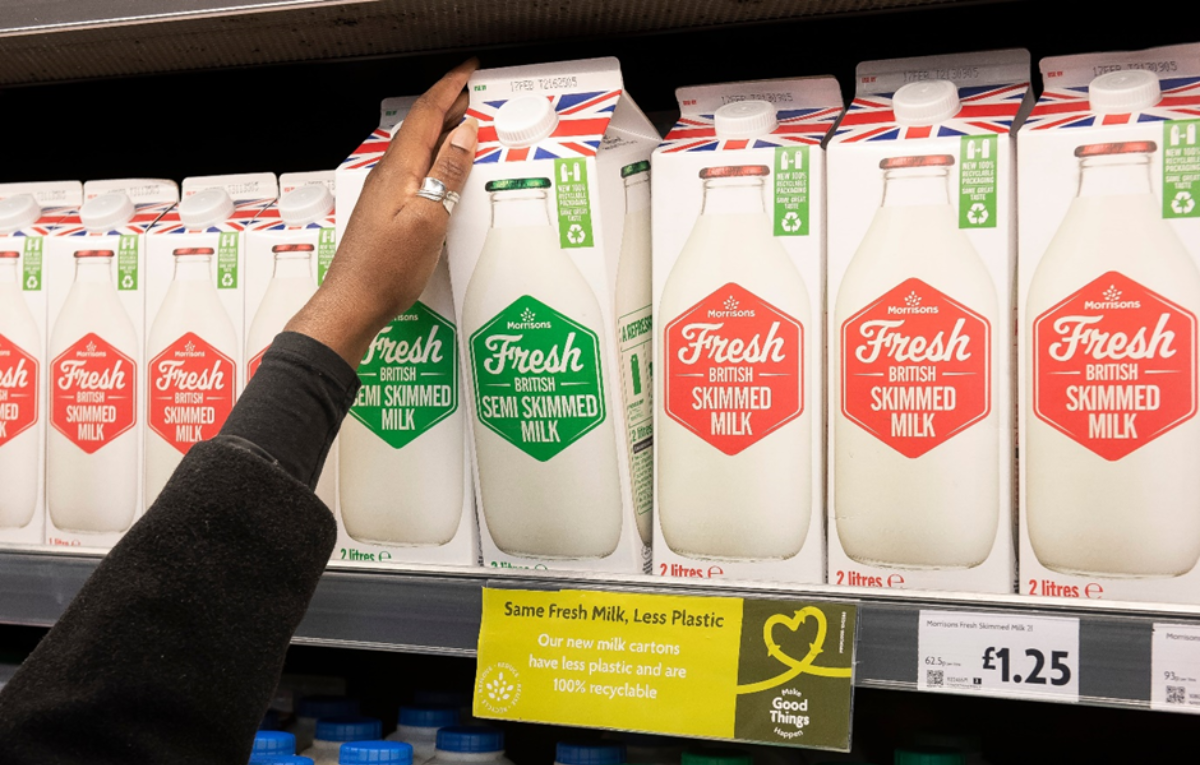
Tetra Pak cartons are made from FSC® certified plant-based paperboard featuring a thin layer of plastic coating and twist caps made from polyethylene derived from sustainably sourced sugarcane. The cartons are also recyclable at home in most regions of the UK as well as in recycling centres across the country.
This sustainable packaging solution combats the use of plastic packaging and facilitates better recycling in the food and drink market.
Delphis Eco – Recycled Bottles and Sustainable Label Materials
Delphis Eco uses bottles made of 100% post-consumer recycled plastic taken from UK waste streams for their sustainable cleaning products. Being the first and only UK eco-cleaning product company to achieve this.
At Springfield Solutions, we provide Delphis Eco with Eco-Friendly Material options for their labels to match the values of their brand and their sustainable cleaning products.
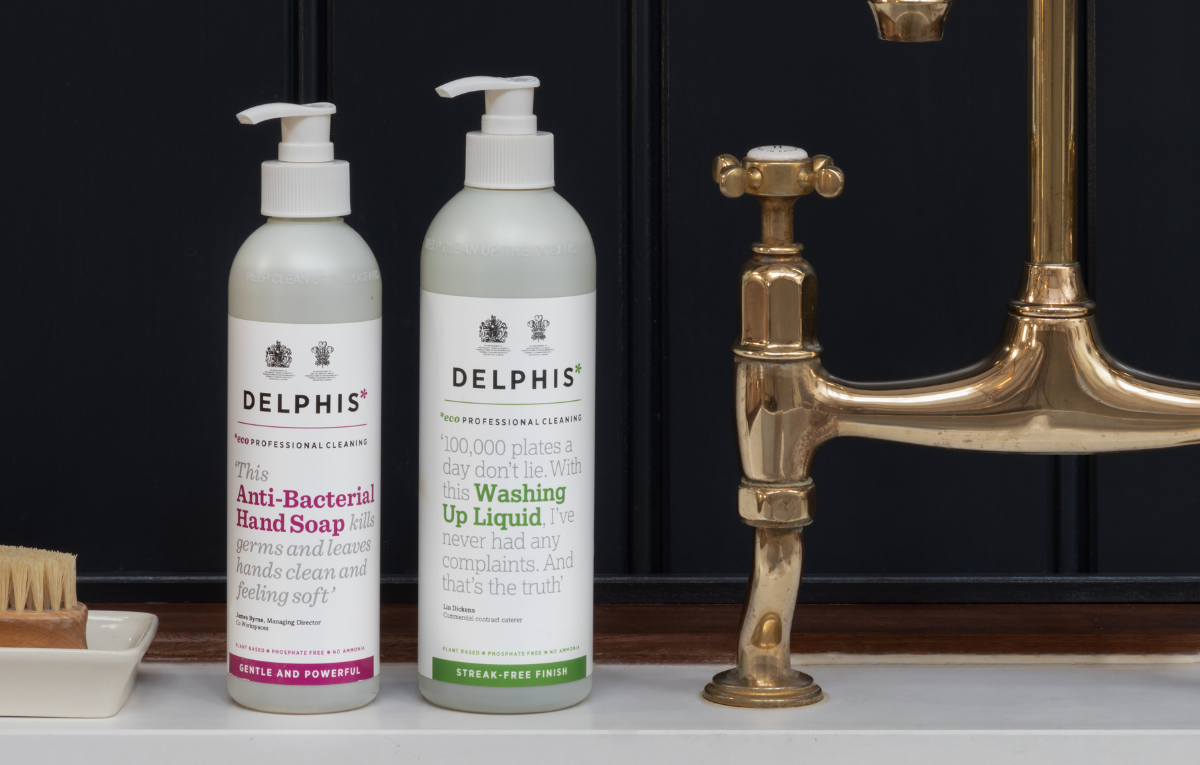
This enables the brand to continue to reduce their effect on the environment through packaging as well as their products. Delphis Eco’s eco-friendly packaging reduces the use of single use plastics, reduces cO2 emissions and promotes a circular economy.
To read more about this case study, click here!
Jonny Walker & Air-Ink
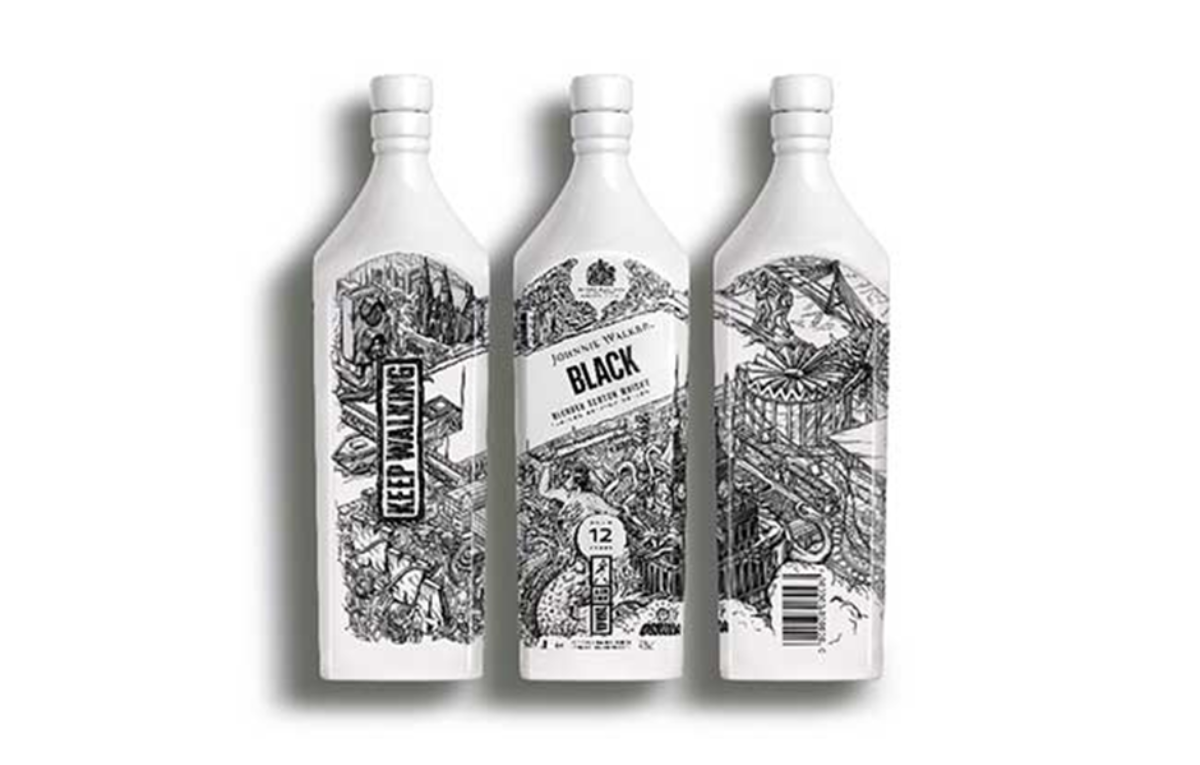
A uniquely eco-friendly packaging example comes from Johnnie Walker and Air-Ink. Diageo-owned Johnnie Walker unveiled six limited edition bottles for its Black Label series, created using an ink made from air pollution.
The ink is created by Air-Ink, who extract environmental pollutants to create black ink, tackling the major issue of air pollution and creating art with it.
Lush – Naked Packaging
Lush has sustainability as a main priority throughout its business from products to manufacturing to packaging.
Their sustainable packaging method is to get rid of it as much as possible!
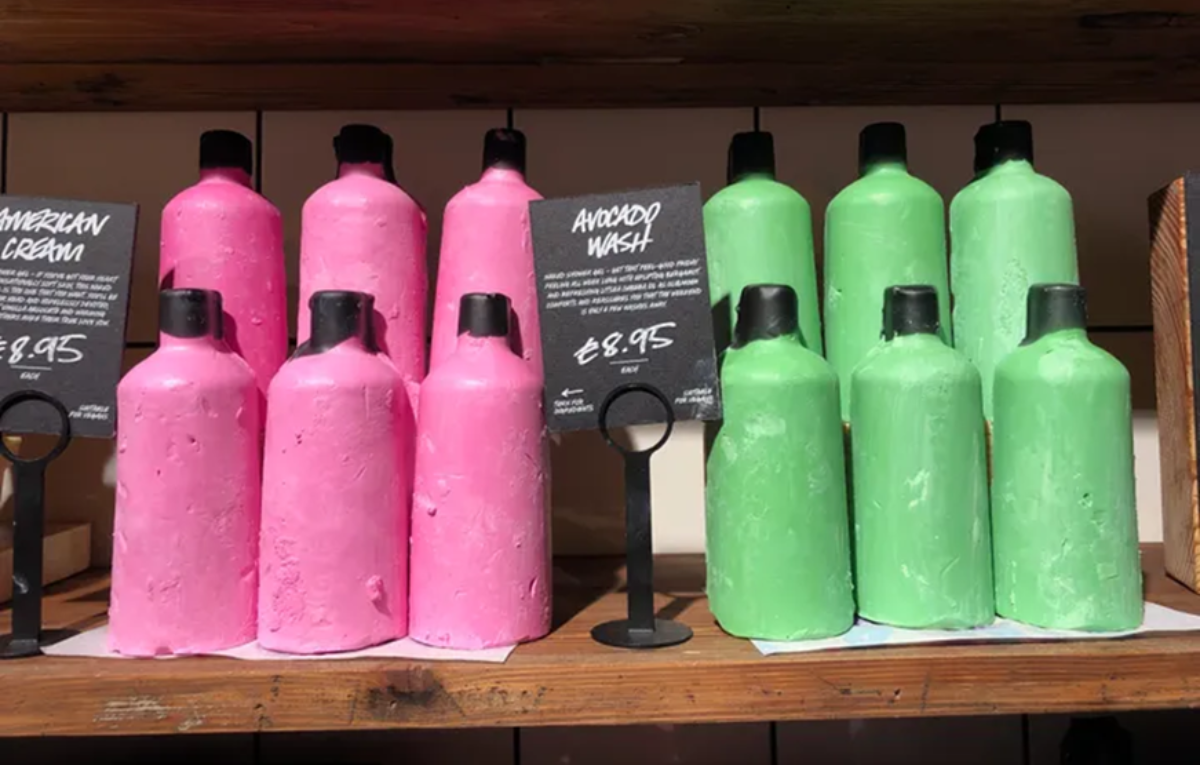
This includes solid shampoos, soaps and other products that do not require any packaging. Where packaging is unavoidable, Lush use recycled materials with 90% of their packaging material being recycled.
Lush also run recycling initiatives in their stores, where customers receive free products or incentives for returning packaging that they cannot recycle at home, such as their black pots.
To conclude, there a number of ways that brands can make their packaging more sustainable! When making your packaging eco-friendly, try out some innovative, exciting ways to not only benefit the environment but attract consumers too!
To learn more about how to fulfil the consumer demand for sustainable packaging, read our in-depth blog here.

